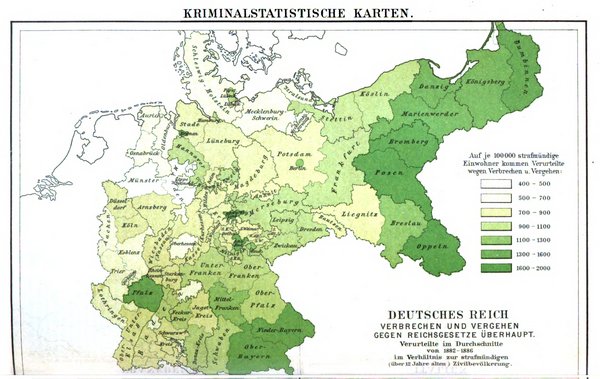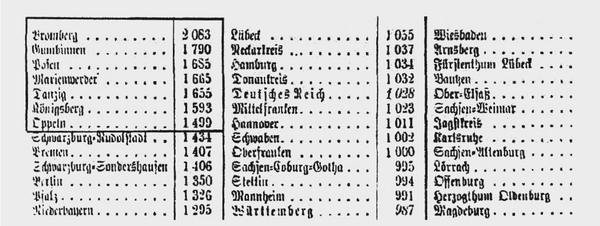
The Criminality of Others. Ethnically based attribution of criminality in the Eastern provinces of Prussia and the Bohemian Lands (1871 to 1914)
Duration: 01/07/2016 to 30/09/2022
Project management: Volker Zimmermann
German funding for the project is provided by the DFG.
The image of the criminal outsider is present today in many different ways: for example in the deep-rooted perceptions of the Roma as habitual criminals or in jokes about Polish car thieves. Taking this into account it would seem worthwhile to take a look at the conditions under which ethnically based criminalization processes emerge as a particularly effective form of social exclusion. The project examines these processes using the historical example of two regions within differently organized political systems: the eastern provinces of Prussia, within the German Empire, an entity conceived as a nation state but in reality constituting an entity hosting multiple nationalities,and the Bohemian Lands within the multi-nation Habsburg monarchy. The project intends to uncover mechanisms and interpretative patterns through which outside images of particular ethnic groups were associated with notions of criminality, and thus served to construct groups of criminal "others." With this purpose in mind, it is intended to analyze state-wide discourses and regional social practices in relation to criminality. The starting point for this analysis is the view that examining ethnically based criminalization processes will help in outlining the self-identification of dominant social groups, their inclusion and expansion practices and the participation in political and social life of portions of the population identified as being other under different ruling structures. It can thus make a very informative contribution, not only to the social and cultural history of the German Empire and the Habsburg monarchy, but also that of other political systems.

